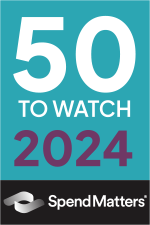South Korea Re‑Starts Asia’s First Mandatory Human‑Rights & Environmental Due Diligence Law

On June 13, Representative Jung Tae‑ho re‑introduced the Corporate Human Rights and Environmental Due Diligence Act in South Korea. If enacted, it would become Asia’s first mandatory law requiring companies to proactively manage their human‑rights and environmental impacts—covering both Korean and foreign multinationals operating in Korea.
Why Does This Matter?
South Korea’s move aligns it with global leaders like France and the EU, which have already pioneered mandatory due diligence frameworks. The EU’s Corporate Sustainability Due Diligence Directive (CSDDD), for instance, takes effect in 2028—although it’s undergoing simplification. Thailand is now drafting its own law, expected in late 2025.
This indicates serious changes in compliance expectations:
- Greater transparency: Companies must report on their due-diligence processes.
- Operational shifts: Firms will need robust systems—from grievance mechanisms to board oversight.
- Legal risk exposure: Violations could trigger official investigations, even sanctions.
Who’s in Scope?
The reintroduced bill retains thresholds from the 2023 draft:
- Companies headquartered in South Korea, or
- Foreign firms with a permanent establishment in Korea,
AND meeting at least one of:
- ≥ 500 full-time employees (including temps),
- KRW 200 billion (~USD 146 million) in annual revenue.
Key Requirements (as of publication of this post)
- Prohibition of Harmful Activities
No knowingly causing human-rights abuses or environmental damage—domestically or abroad . - Corporate Governance Structures
- Board-level committee to oversee due-diligence plans and results.
- Designated compliance manager.
- CEO-approved annual due-diligence plan (subject to additional decree details).
- Board-level committee to oversee due-diligence plans and results.
- Grievance Mechanism
Accessible, anonymous reporting with confidentiality and anti-retaliation safeguards. - Due-Diligence & Mitigation
Annual impact assessments and mitigation plans, prioritized by severity and likelihood. - Stakeholder Engagement & Transparency
- Must consult affected stakeholders.
- Inform stakeholders of plans, actions, and outcomes.
- Respond within 10 days to information requests, unless protected as trade secrets—barring serious health or safety concerns .
- Must consult affected stakeholders.
- Reporting & Oversight
- Disclose due-diligence outcomes publicly.
- Submit reports to the Human Rights & Environmental Corporate Committee when:
a) appeals are raised by stakeholders,
b) operations occur in high-risk regions, or
c) the Committee determines it’s necessary .
- Disclose due-diligence outcomes publicly.
- Presidential Decrees
The government will define thresholds, standards, guidance, and designate high-risk areas .
Implications for Companies Connected To South Korea
- Global Supply-Chain Compliance: Any tier of the supply chain tied to covered companies will require clarity and documentation.
- Governance Upgrades: Boards will need to include ESG/due-diligence oversight.
- Operational Readiness: Firms should begin developing annual due-diligence frameworks, grievance systems, and stakeholder-engagement protocols.
- Legal Exposure: The new Committee will empower stakeholders to file appeals, while non-compliance could lead to investigations.
What Should Companies Do?
- Monitor the Bill’s Progress: Expected review by the Ministry of Government Legislation. Stay tuned for updates on formal passage.
- Regulatory Prep: Anticipate presidential decrees on implementation parameters. Firms should draft policies based on draft thresholds and standards.
- Client Briefings: FRDM should host a webinar or roundtable for Korean- and EU-facing clients to walk through upcoming implications and compliance strategies.
FRDM Perspective
South Korea is charging ahead to become Asia’s first adopter of mandatory human-rights and environmental due diligence. For global companies and FRDM clients, that means a phase of proactive compliance transformation. Boards, operations, HR, legal teams—all will need to align on governance, transparency, supply-chain oversight, and meaningful stakeholder engagement.
Now is the time for leadership to stay informed, prepare internal systems, and consult early—before the law passes.
Schedule a consultation with a subject matter expert today!








